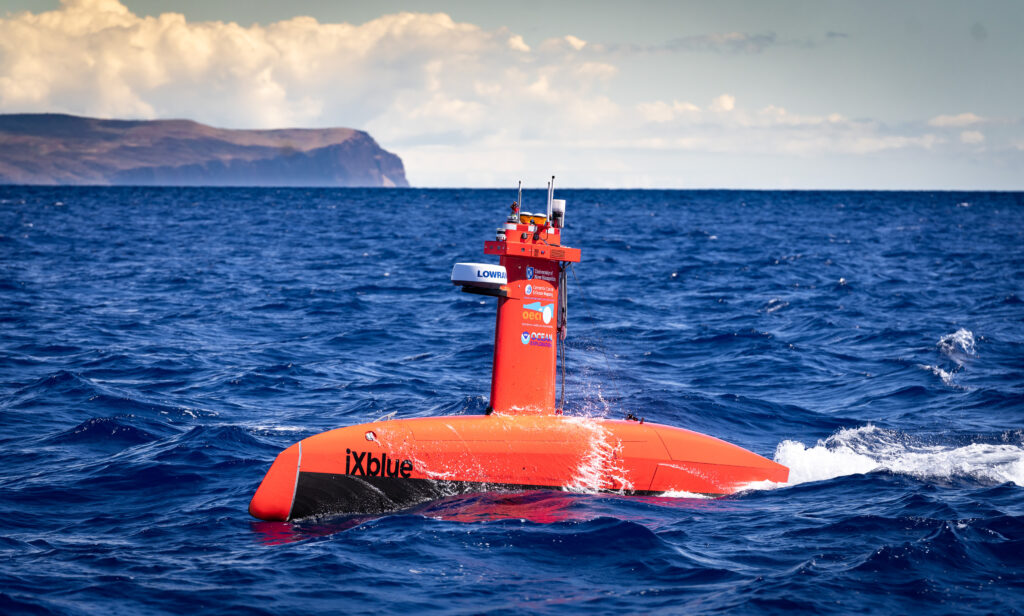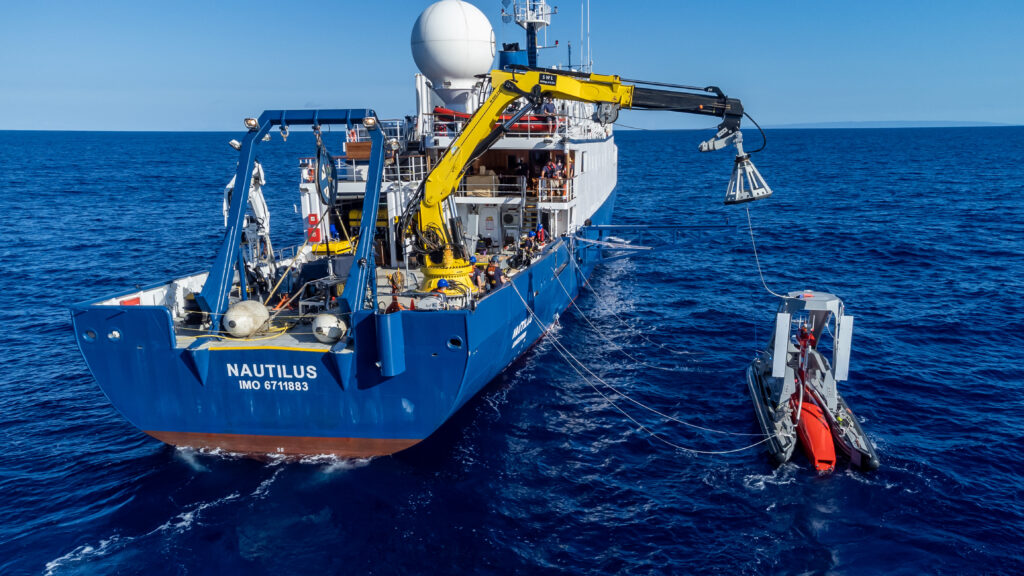- Maritime
NOAA’s Ocean Exploration Cooperative Institute takes delivery of DriX Uncrewed Surface Vehicle
Delivered in July to UNH CCOM, DriX and its novel Universal Deployment System have successfully completed sea acceptance trials and extensive personnel training during the summer of 2021 as well as integration and a first shakedown cruise onboard Ocean Exploration Trust’s E/V Nautilus in March 2022.Denver (CO), 04/14/2022 – The University of New Hampshire’s Center for Coastal and Ocean Mapping (UNH CCOM), as a member of the Ocean Exploration Cooperative Institute (OECI), funded by NOAA Ocean Exploration, has taken delivery of an iXblue DriX Uncrewed Surface Vehicle (USV) and its Universal Deployment System. The autonomous solution will help expand the footprint and efficiency of the OECI’s ocean exploration operations.

“We are delighted to embark on this exciting endeavor, working collaboratively with our partners to develop and enhance autonomous technologies that will expand the limits of our capabilities and bring new efficiencies to our efforts to explore and characterize the vast unknown areas of our oceans,” said UNH CCOM Director Larry Mayer.
“NOAA Ocean Exploration is pleased to see the operations of this new DriX technology successfully integrated with Exploration Vehicle Nautilus,” said NOAA Ocean Exploration Director Jeremy Weirich. “Being able to operate DriX over the horizon and away from a ship will increase the rate at which we can explore the U.S. Exclusive Economic Zone in support of the National Strategy for Ocean Mapping, Exploration, and Characterization.”

Selected by OECI for its mission endurance, ability to operate at high-speed, and excellent offshore seakeeping ability, DriX will support NOAA Ocean Exploration’s mission by providing mapping and characterization capabilities and supporting other autonomous vehicles that are independent of the activities of the mother ship, greatly expanding the efficiency and effectiveness of ocean exploration operations. The research being conducted with DriX will serve to inform NOAA on the potential use of autonomous systems in support of the broad NOAA mission.
“We are thrilled to add DriX to the OECI collection of vehicles. It is critical to our vision of expanding the footprint of ocean exploration by collecting valuable ocean exploration data independently and simultaneously with a research vessel and at the same time providing communications and support for submerged assets” said Dr. Adam Soule, Executive Director of OECI. “This is a linchpin for the future of ocean exploration.”
The DriX vehicle will be a key technology in several ocean exploration expeditions this summer. Learn more and join the expeditions at https://nautiluslive.org/expeditions/2022
About NOAA Ocean Exploration
NOAA Ocean Exploration is the only federal program dedicated to exploring the deep ocean. By leading national efforts to explore our ocean and making ocean exploration more accessible, NOAA Ocean Exploration is filling gaps in our basic understanding of U.S. deep waters and the seafloor, providing critical deep-ocean data, information, and awareness needed to sustain and accelerate the economy, health, and security of our nation
About NOAA OECI
The NOAA Ocean Exploration Cooperative Institute brings together five partners (University of Rhode Island, Ocean Exploration Trust, University of New Hampshire, Woods Hole Oceanographic Institution, and University of Southern Mississippi) to develop new technologies that will accelerate the pace, quality, and breadth of ocean exploration, to implement those technologies in the exploration of the US EEZ, and to engage and train a new and diverse generation of ocean scientists, engineers, and stakeholders.


